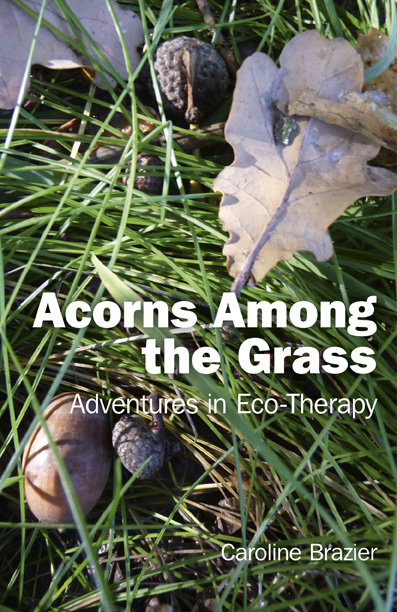Acorns Among the Grass
Reconnecting with the natural world, we discover our deep relationship with life. Environmental work nourishes us psychologically and spiritually.

Reconnecting with the natural world, we discover our deep relationship with life. Environmental work nourishes us psychologically and spiritually.
Reconnecting with the natural world, we discover our deep relationship with life. Environmental work nourishes us psychologically and spiritually.
Buddhism (general), Gaia & earth energies, Psychology (general)
Modern life cuts us off from our roots. Our urban lives, often full of activity and anxieties, despite their apparent comforts, commonly lack many of the resources which ground us and feel fulfilling. At the same time, our behaviour as a species threatens to destroy the planet on which we live.
Reconnecting with the natural world can be deeply transforming, both psychologically and spiritually. As we start to awaken to the damage which our disconnection from nature is doing both to ourselves and to our environment, we wake up to a new relationship with the world founded on understanding and spiritual truth. In this context, some therapists are now looking for new ways to work which directly rebuild our connection with nature.
This important book presents an approach to working with the environment which embraces the therapeutic and the spiritual, offering a model of working which is sympathetic and creative. incorporating both theoretical understanding and vivid description of experiential work, it will appeal to both the professional and the general reader. Connecting with nature, we open to life in new ways.
Click on the circles below to see more reviews
A compelling and evocative book. I think it makes an important contribution to reducing stress by supporting emodiment and well-being, and provides a well resource for anyone interested in this developing field.
~ Joanna North, Therapy TodayIts selling point to me was its promise to reconnect me with the natural world and allow environmental work to nourish me psychologically and spiritually. Therefore, I was quite surprised to find Caroline Brazier, the author, talking in-depth about Buddhist practices.
Even though it wasn’t what I expected, I continued to read as I liked the author’s writing style – it was very conversational and personal. She explained about Buddhism and gave a brief grounding of information for those who know nothing about it (i.e. me).
Throughout the 18 chapters were lovely snippets of inspiration and thoughts from her friends, and some insightful pieces that really hit home and made you think – which is the whole reason for the book in the first place. It’s showing society how materialistic we are and how we need to get back outdoors to enjoy nature.
Acorns Among the Grass gives a whole new meaning to the term "groundwork." Here, at last, is the foundation for an Earth-based psychotherapy that connects us with the oldest, most powerful healer of all--the planet that gave us birth, sustains our lives in each moment, and catches us when we fall. I can't imagine a more positive development in this time of global environmental crisis--one that gives hope for the individual and for the Earth itself.
~ Clark Strand, Clark Strand is a contributing editor for Tricycle: The Buddhist Review and the founder of the Green Meditation Society in Woodstock, New York."An inspiring and creative primer on eco-therapy, thorough and richly evocative"
~ Martine Batchelor , author of \"Buddhism and Ecology\" and \"Let Go\".